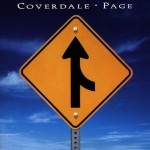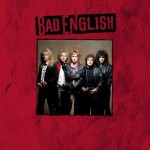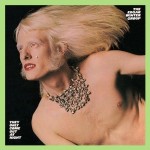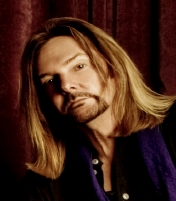For the last decade, Ricky Phillips has played bass guitar with arena rock favorites Styx, whose extensive touring continues to bring the band’s hard-rocking, FM-radio-friendly prog, and power ballads to the masses.
Phillips has also been a member of other notable bands, including The Babys, supergroup Bad English (best known for their No. 1 hit “When I See You Smile”), and Coverdale/Page. He has also played with Ronnie Montrose and Jeff Beck.
Phillips answered the following questions in a phone interview on 1/19/13. This served as the basis for a preview article for the Styx concert at the Chumash Casino on 2/7/13.
Jeff Moehlis: What can we look forward to at your upcoming show at the Chumash Casino?
Ricky Phillips: For people who haven’t seen Styx, I think they’ll be surprised. The cool thing about the band is it has really moved forward, it’s continued to move forward every year it’s been together. This is a band of guys that don’t phone in a past catalog. We try to make every show better than the night before. It’s kind of an ongoing process of how to perfect something that can’t be perfected, but that’s what we’re all about.
Another thing is that we did some shows about a year and a half ago where we went out and did all of the Grand Illusion album, took an intermission, came back and played all the Pieces of Eight album. Which led us to songs that had never been performed live by Styx before. It took us to some deep cuts on those albums, and that’s kind of started a trend where we’ll give everybody what they came to hear, the obvious hits, and then we’ll go to the deep cuts at a certain part in the set for the real die-hard Styx fans and the listeners that love to hear that.
Styx is very diverse. In its inception, it was kind of a hard-driven prog rock band that all of a sudden started getting radio hits. And that’s what people hear, the radio hits. Some of the fans that were led to the band in its origin didn’t come for the hits, they came for the deep cuts. So we’re doing those for part of the set, and are getting a great response for that.
JM: You’ve been in Styx for quite a while now, I think almost ten years. Are you still treated as “the new guy”?
RP: Yeah, I think I’ll always be the new guy [laughs]. This is kind of an interesting situation. When I was in The Babys, I was the bass player. I did come into the band after it moved to the States from the U.K. But John Waite was the bass player, and was still there as the singer. He just moved over and I came in on bass. And then in Bad English, when [Jonathan] Cain and Waite kind of merged The Babys with Neal Schon into Bad English, I was there for the inception. In both of those bands I was going in making the records, and creating my own bass parts.
Coming into this band, they approached me like, “Hey, we want you in the band. What do you think? Do you want to go back out on the road? Do you want to do this? We’re on the road 200 days plus a year. And we don’t really want any more members to come in.” This is the situation that came up because Chuck Panozzo, who still is with us, has some health issues. He had some health issues – he’s doing great now. He’s still out with us quite a bit, I’d say about 85% of the shows he’s out with us. We bring him out at a certain point in the show, and I strap on a guitar, and then he plays a number and usually leaves, and comes back out for the encores. But still very much as a founding member, a part of the band. But it took me some time to kind of figure out…
I learned all of his bass parts. I have a pet peeve about bands who don’t play the song you fell in love with. Or they don’t do the lick that you love. You go to see them in concert, and the guitar player plays a completely different solo from the one you know from the record. I think that’s a big part of what paying allegiance to, and homage to, anybody’s past catalog. That’s what created your success, that’s what made your fanbase. I think you have a certain responsibility to present that.
That being said, I think it’s also important as growing musicians to give a bit of yourself, and find out places and ways to bring in a little something new and fresh. Because that makes it fresh not just for you, but also the audience. They can feel a vibe off of that. So for me in Styx, learning Chuck’s parts and then coming in and trying to figure out a way to make it gel, I’ve gone through several paths. But I think I’ve, over the years, found a way to get all the hit marks and the hit points in the song, where there’s a line that everyone would recognize and know, that would change the song if it wasn’t there, and then find the places where I can stretch out and do what I do. Which is a little bit different stylistically. But it seems to gel, and it seems to work.
JM: I have to ask, as a guy, about Tommy Shaw. He’s almost 60 years old, he still looks great, he still sounds great. Do you know what his secret is?
[both laugh]
RP: I think really it’s simple… We talk about it all the time. When you’re doing what you love, and it’s successful, and you’re still able to keep doing it, you don’t seem to notice that time has passed on the way other people have a benchmark for the years. They might be punching a timeclock and not exactly doing what their passion is. I think if you look around, no matter what part of the arts that it’s in, a lot of these people seem to drink from the fountain of youth. I think it really does come from just a place of completion, and a place of a passion being recognized and carried as a torch throughout your life. If you’re able, or lucky enough, to be on this planet and be able to do that, I think that’s part of the reward.
JM: Do you have a favorite Styx album?

RP: Probably Pieces of Eight, actually.
JM: That’d be mine also.
RP: I just think that the songs… they’re dark but they’re cool, you know? They’ve got an edge to them, there’s a lot of melody there, but it’s not just happy, poppy melody. There’s a lot of cool stuff going on.
All the way up to “Aku Aku”, which is almost a Floydian sort of piece of music. A lot of people have never heard “Aku Aku”. It’s one of those cool tracks… When we were doing that record, to end the night with “Aku Aku” we decided to do it exactly the way it was recorded. When we made records back in the day, all the bands would stack the frontside with their hits, because you wanted to have the program director put down that new record and listen to it to decide if he wanted to put you on their playlist, and obviously that’s where your success was derived from. So you stacked the frontside. And the record would be hit, hit, hit, and then it would go from there on to what are considered deep cuts or album cuts.
When you play that live, generally the way you go out is you play something that everyone knows, and then you go through whatever songs, and then you stack the back end and your encores with big hits that people are waiting for all night.
When you do a record performance, it’s completely backwards. So when you end with “Aku Aku”, we decided to fade it, just the way it is on the record, to try and do a live fade. The first night we tried it, man, I’ll tell you what, we had no idea if it was going to work or not, if it was just going to lay flat on its face. We faded out, and it was completely dead silence, no applause at all. Then about three or five seconds later, all of a sudden the place erupted. It worked, you know, but it was a tenuous moment.

JM: In addition to Tommy Shaw and James Young, you’ve played with a bunch of other real great guitarists. One that sticks out when I look at your bio is Jimmy Page. What was that experience like, playing with Jimmy?
RP: That was probably one of my favorite experiences in my career, for obvious reasons. Another one was being able to jam onstage and play with Jeff Beck in Japan. I’m a huge Jeff Beck fan, a huge Jimmy Page fan, a huge Eric Clapton fan from when he was in The Cream. Those guys were the three guys that I thought, man, it doesn’t get any higher than that.
Working with Jimmy, and watching what he does in the studio… I was fortunate enough, I got a phone call from David Coverdale saying, “Hey look, Jimmy and I are going to do a record together. We don’t know what the band’s going to be, but we’re going to get together and start working on the material. Would you be interested in just getting together with us, and helping us woodshed this material?” So, I got a chance to go in and daily work with Jimmy. Denny Carmassi – the drummer – and I would work with Jimmy, and go over the songs. Dave would come in in the afternoon and we’d go from there. And it was a really, really fun process, to play that Zeppelin-esque style that Jimmy has, obviously, and see how it’s created from its inception. And be a part of that.
I had a lot of fun with that because, not only did I write all of the bass parts, but I also wrote probably 80% or more of the keyboard parts. We worked really close, David and I. We’d sing some backgrounds. David would have a keyboard idea and he’d come over and tell me over my shoulder what to do while we were laying down all the demos of the stuff. Yeah, it was a very, very cool time.

JM: Of course, you also played with Neal Schon as part of Bad English. Could you reflect on that time in musical history, the “hair band” era, which of course you had some success with?
RP: You know, I think it was tough at that time to ignore the hair band, spandex pants… Every band seemed to homogenize towards the end of the 80’s. It was almost like to get on the radio you had to have this one sound, that branched somewhere from Bon Jovi to Aerosmith to all the other bands that were formulating a sound. Instead of having the diverse playlist of the 70’s and the early 80’s even, it became very homogenized.
We had started off being pretty, I think, unique, and then we got in with a major record label, who was good to us. And we wanted to have success. We ended up having a lot of hits on that first record, but we tried our own way of coming up with stuff that was very cool and deep. Musically, musicians would’ve loved it. But most guys who play for musicians are guys that are probably living in their parent’s basement now.
JM: [laughs]
RP: It’s a tough pill to swallow. So we did try to create music that was a little bit more commercial, that we could live with. That’s kind of what happened.
On the second record, we didn’t do that. We started getting darker. Some of it still had that kind of formulaic thing, but it got a little darker. And that’s when we all started going off in different directions, and ended up leaving the project at that.
But it was a fun time, and I have to say about Neal Schon, he’s probably one of the most prolific guys I’ve ever witnessed. You can leave him at 10:00 at night, and he’ll be banging on your door the next morning with ten new ideas that are genius. The guy has a gift, and plays the hell out of a guitar.
JM: Well, he certainly did when I saw him here in Santa Barbara, as expected.
RP: You know what, when Neal just plays slow-handed blues, it’ll blow you away. That’s what gets me. The guy can just take the guitar and grab it in his hands, and have that deep expression with just a few notes. The flurry of a million notes, I couldn’t care less at a certain point.
In Japan, the time we played with Jeff Beck as a matter of fact, it was Neal, Jeff Beck, and Steve Lukather. He had a solo band that he was opening up with. And the three of them were out there. We were playing “Going Down”, and John Waite was singing. They would start trading solos between Jeff and Steve and Neal, and up against those guys it made me realize just how good Neal was. Because every time Neal played, instead of going to a flurry of notes he’d do these slow-handed things. And Jeff got this big, huge smile on his face, and just put his hands towards Neal, like “Wow”. It was like that. Neal can just speak volumes with just a few notes, and I think that’s huge.
JM: I know that you were friends with Ronnie Montrose, who is sadly no longer with us. Could you describe the Ronnie Montrose that you knew?
RP: Ronnie, I miss him so, so deeply. He was an absolute amazing cat, not just on the guitar but as a human being. He was a crazy, kooky, wonderful cat, man. Music was almost an incidental thing that we did together.

Hanging with Ronnie… he was a very artistic guy. Nobody played guitar like him. We did a benefit for Ronnie after he passed, and, speaking of Neal, Neal and I and Steve Smith, the great drummer from Journey who’s gone on to be a renowned jazz drummer, we did “Town Without Pity” and a song called “Open Fire”, which was from Ronnie’s time when he was doing instrumental, proggish sort of music. We opened the night with those two pieces of music. You know, as good as I just said Neal was, he had to really approach that with kid’s gloves. Because Ronnie had a style that he kind of wrote the book for in the Edgar Winter Group, before even Montrose, when he was playing with Edgar Winter. He wrote some things that were simplistic, sort of radio-friendly guitar riffs that have been adopted by zillions of guitar players who probably had no idea that Ronnie was the first guy to really play that sort of style and approach. So when you played with Ronnie, you couldn’t help but smile. You’d just keep looking at him, because this stuff just kept coming out and coming out, night after night.
We’d gotten to the point, towards the end of when I worked with Ronnie, where he and I would end up face to face, nose to nose in the middle of the stage, and we’d do these extended jam things where he would throw something at me and I’d throw it back. We’d have so much fun, but I learned an awful lot from phrasing that I’d already stolen from him without knowing it, and then was reminded of it and regurgitated it and tried to spit it back to him. The guy was a master at his thing, and nobody can touch him on what he did. He was just a great guy.
JM: What advice would you give to an aspiring musician?
RP: Well, there’s two ways to answer that. One of them is I’d give them no advice. They’ve got to fuck up just like we all did. And that’s probably the best advice.
But, before you waste a lot of time, yours and everyone else’s, go deep and decide, would I be doing this if I was living out of the back of a station wagon selling freshly burned CDs out of the back of it as I travel around the country? Because, really, that’s probably where the odds lie. If you’re happy doing that, go for it, man. Do whatever it takes. Enjoy it. But enjoy that part of it. Because I think some of my favorite memories are actually playing, you know, six guys, seven guys in a hotel room or motel room with cockroaches and whatever. Seriously, the most fun that I can remember is really kind of getting there. That’s what people say, and that’s really true. There’s been a lot of fun since, don’t get me wrong. But it’s a tough way to go, it’s a tough business. I think that if you feel like you’d never be happy unless that’s what you did, then do it.
JM: What are your plans, with Styx or otherwise, for the near future?
RP: I write a lot. Writing at this point is really an exercise for my own sanity. I have a lot of songs that I really need to get recorded. I just finished building my studio [laughs]. It’s taken forever because we’re on the road so many days out of the year. But I’m finally at that point where I’m going to start trying to woodshed and get a lot of stuff archived and get them down, see what I’ve got. Maybe try to get them to other artists, see what’s good for Styx, see what’s good for whoever. But, really, it’s more of an exercise for myself.
We were talking this the other day, because every musician spends a ton of dough on their studios. It’s not really because you’re looking for a return on your investment, it’s because investment and return is more of an emotional, artistic sort of satisfaction. Just to be able to exercise what you do. Once you start recording, becoming a recording artist, that’s a big part of it. The recording industry kind of went away, the way we knew it. So writing a song is great, but recording it is another whole process. You can write a ton of songs, but getting them actually down and coming back with the voice that you heard in your head, the way you thought it should sound, is a serious process. Technical process as much as artistic. So I kind of look forward to doing that.
JM: Do you want to set the record straight on anything about your career or the bands and people that you’ve played with?
RP: You know what? Not really. I don’t know what it is that I’ve contributed that people are even aware of. I’m always shocked or surprised when some guy comes up to you in a restaurant, and is just, “Dude, I loved what you played in blah, blah, blah.” I’m like, really? Why does this guy even know who I am? I’m not a lead singer. I’ve always been sort of the guy that’s popped in and been asked to be a part of a situation to help it grow from the roots, and support the foundation.
I remember John Entwistle once, who was my hero, in an interview… I loved him for this, because he said, “Why are you talking to me? I’m just a bass player.” I always thought, wow, even John Entwistle feels that way? It’s just one of those things. You are surprised by being noticed. At least I have been. When people appreciate you, appreciate what you’ve done, and can quote back or explain something that you did, whether it was a live show or it was on a recorded piece of music. I’m always flattered and humbled by that. And I definitely dig it. But I don’t ever expect it.
JM: My last question is probably an easy one. Where are you speaking to me from?
RP: I’m in North Carolina. Let me look at the phone and see what city.
JM: I know you guys travel a lot.
RP: Fayetteville. I’m in Fayetteville, North Carolina. We were in New Orleans a couple of nights ago, and last night… I forget. You jump on a bus, and your brain seems to stay in the last city.


Discussion
No comments for “Interview: Ricky Phillips”